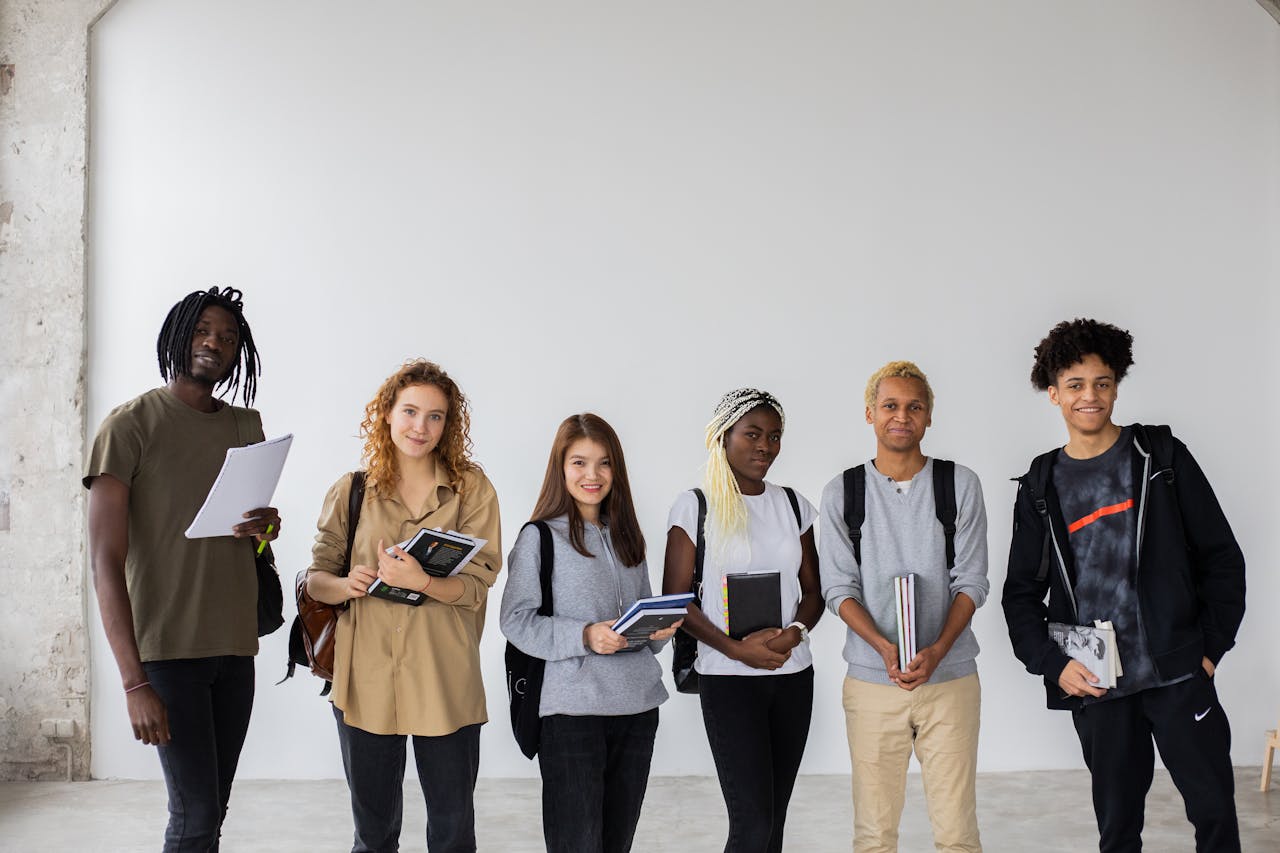Studying in the US: Your Journey to Success with Fly Fortune
Why Study In the US?
Dreaming of studying in the land of opportunity? The United States offers a world-class education, endless possibilities, and a vibrant culture that’s hard to beat. Let’s dive into why the US is the perfect place for your academic adventure:

Flexible Curriculum
: With a wide range of academic programs and specializations, you can tailor your education to your passions and goals. Explore interdisciplinary fields and take electives to broaden your horizons

Support for International Students
US universities are committed to helping international students thrive. You'll find a welcoming community, language assistance, and resources to ensure a smooth transition

World-Class Education
US universities are renowned for their rigorous academic standards, cutting-edge research, and experienced faculty. You'll be surrounded by brilliant minds and have access to state-of-the-art facilities

Endless Opportunities
From Silicon Valley tech giants to Hollywood studios, the US is a hub of innovation and creativity. Your degree will open doors to countless career paths and personal growth opportunities

Research and Innovation
The US is at the forefront of scientific discovery and technological advancements. You'll have the chance to work alongside leading researchers, contribute to groundbreaking projects, and shape the future

Career Success
A US degree is highly valued by employers worldwide. The country's strong job market and emphasis on practical skills will give you a competitive edge in your career
Visa Requirements and Types of Visa to study in the US
Before you embark on your US adventure, you’ll need to secure a student visa. The most common types are:
- F-1 visa: For academic study at a US university or college.
- J-1 visa: For exchange visitor programs, including study, research, or teaching.
The specific requirements and application process may vary depending on your nationality and the program you’re applying to. We’re here to guide you through every step of the visa application process.
Intake Availability
US universities typically have multiple intakes throughout the year, giving you flexibility in choosing your start date. However, some programs may have limited intake options. We’ll help you find the best fit for your schedule and goals.
Cost to Study in the US
The cost of studying in the US can vary depending on factors like the university, program, and location. We’ll provide you with a detailed breakdown of tuition fees, living expenses, and potential financial aid options.
Scholarship Programs
Dreaming of studying in the US without breaking the bank? We’ll help you explore a variety of scholarship opportunities that can significantly reduce your tuition costs. From prestigious full-ride scholarships to smaller grants, we’ll find the perfect fit for you.
Top Courses to Study in the US
The US offers a diverse range of top-quality programs across various fields. Some of the most popular choices among international students include:
- Engineering
- Business and Management
- Computer Science
- Health Sciences
- Social Sciences
- Arts and Humanities
Job Opportunities
The US boasts a thriving job market, offering ample opportunities for international students to gain valuable work experience. We’ll provide guidance on job search strategies, resume writing, and interviewing tips.
FAQ
Admission requirements for US universities can vary depending on the institution and the specific program you’re applying to. However, some common requirements include:
- Academic transcripts: These should demonstrate strong academic performance in high school or previous university studies.
- Standardized tests: Most US universities require either the SAT or ACT exams.
- Letters of recommendation: These should be from teachers or professors who can attest to your academic abilities and potential.
- Personal statement or essay: This gives you a chance to express your motivation for studying in the US and your academic goals.
- English language proficiency: If English is not your native language, you’ll likely need to provide proof of proficiency, such as TOEFL or IELTS scores.
The process for applying for a student visa to the US involves several steps:
- Admission to a US university: You must be accepted into a legitimate US university or college before applying for a visa.
- Obtain a Form I-20: Your university will provide you with a Form I-20, which is a certificate of eligibility for nonimmigrant student status.
- Pay the SEVIS fee: You’ll need to pay the Student and Exchange Visitor Information System (SEVIS) fee online.
- Schedule a visa interview: Once you’ve paid the SEVIS fee, you can schedule a visa interview at a US embassy or consulate in your home country.
- Attend the visa interview: At the interview, you’ll be asked questions about your educational plans, financial support, and intentions for staying in the US.
- Receive your visa: If your visa is approved, you’ll receive your passport with the visa stamp.
The cost of living in the US can vary significantly depending on the city, state, and your lifestyle. However, you can generally expect to spend more on housing, food, transportation, and other expenses compared to your home country. It’s important to create a budget and explore financial aid options to help manage costs.
Yes, international students are generally allowed to work part-time on campus or off-campus with a specific work authorization. On-campus work is usually permitted without additional authorization, while off-campus work requires specific permission from the US Citizenship and Immigration Services (USCIS).
The “best” city for international students depends on your individual preferences and goals. Some popular cities with large international student populations include:
- New York City: Offers a diverse cultural experience, world-class universities, and numerous internship and job opportunities.
- Boston: Known for its academic excellence, historical sites, and vibrant arts scene.
- Los Angeles: A major center for entertainment, technology, and business, with a diverse population and beautiful weather.
- Chicago: A bustling metropolis with a strong economy, cultural attractions, and affordable cost of living compared to coastal cities.
There are many scholarships available for international students seeking to study in the US. Some popular resources for finding scholarships include:
- Your university’s financial aid office: Many universities offer scholarships specifically for international students.
- Government scholarships: Your home country’s government may offer scholarships or study abroad programs.
- Private scholarships: There are numerous private organizations and foundations that offer scholarships to international students.
- Online scholarship databases: Websites like Scholarships.com and Fastweb can help you search for scholarships based on your eligibility criteria.
Remember, studying in the US can be a rewarding experience, but it’s important to plan ahead and do your research to ensure a successful journey.
What Our Guests Say
We take pride in serving our guests with the best experience. Read what they say.


Plan an Unforgettable Experience in USA!
Book Your Stay Now
-
+1 5715874888/
+91 97001 83981
